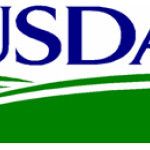- 行业: Government
- Number of terms: 41534
- Number of blossaries: 0
- Company Profile:
A clause in the UR Agreement on Agriculture that gives countries the option of foregoing tariffication on some commodities and instead requires minimum imports above the minimum access commitments of 3-5 percent of consumption. This clause was added to temporarily placate Japan and South Korea by providing protection for their rice sectors. In the case of Japan, for instance, the minimum import requirements for rice are at 4 percent of consumption in 1995, rising to 8 percent in 2000.
Industry:Agriculture
WIC provides federal grant funds to state health agencies and recognized Indian tribal organizations to operate programs for low-income pregnant and postpartum mothers, infants, and children (under age 5) who are at risk due to inadequate income and diet. The program offers monthly food packages consisting of specifically authorized supplemental foods containing nutrients often found lacking in the diets of WIC participants, and is operated at the local level by public health and other agencies with a link to health care providers. WIC foods include infant formula and cereals, milk, cheese, eggs, breakfast cereals, fruit and vegetable juices, dry beans and peas, and peanut butter. Participants must meet both a low-income and nutritional risk test to be eligible. Foods are provided either directly by a local WIC clinic, or more commonly, in the form of WIC vouchers issued to participants that list specific types and amounts of foods that may be redeemed by the participant at authorized grocery stores. The program is authorized through FY2003 under Section 17 of the Child Nutrition Act of 1966 and funded as a discretionary program by annual agriculture appropriations acts.
Industry:Agriculture
Formerly known as Rebuttable Presumption Against Registration (RPAR), this is a regulatory process through which existing pesticides suspected of posing unreasonable risks to human health, non-target organisms, or the environment are referred for review by the Environmental Protection Agency. Such review requires an intensive risk/benefit analysis with opportunity for public comment. If risk is found to outweigh social and economic benefits, regulatory actions ranging from label revisions and use-restriction to cancellation or suspended registration can be initiated.
Industry:Agriculture
Provisions within the UR Agreement on Agriculture designed to protect products which were subject to tariffication from surges in imports or large price declines.
Industry:Agriculture
Offers federal reimbursements for each half-pint of milk served to a child in a participating outlet, which generally is any school or facility caring for children that does not participate in other federally subsidized meal programs. There is an exception from this limitation for kindergarten children in split session programs. The program is permanently authorized under the Child Nutrition Act of 1966. Schools may offer free milk to children meeting free lunch income requirements, if they choose, and this milk is reimbursed at full cost. Otherwise, children buy so-called paid milk, which is subsidized at a legislatively set rate for each half-pint served. This program is administered by the Food and Nutrition Service (FNS), and funded by annual agricultural appropriations.
Industry:Agriculture
A set of GATT provisions (in Article 18) that exempts developing countries from the same strict trade rules and disciplines of more industrialized countries. In the Uruguay Round Agreement on Agriculture, for example, developing countries are given longer time periods to phase in export subsidy and tariff reductions than the more industrialized countries.
Industry:Agriculture
The kernels are small to medium size with smooth skin, and the kernel color ranges form a pale pinkish buff to a light brown during storage. This type of peanuts are used predominantly in peanut candy, although significant quantities also are used for salted peanuts and peanut butter. Spanish peanuts have a higher oil content than other types of peanuts. Those peanuts are grown primarily in Oklahoma and Texas, and account for 4% of U.S. production.
Industry:Agriculture
An agreement among Southern U.S. states that would allow member states to jointly establish a minimum farm price for fluid milk that is above the federally mandated minimum price level in the region. The Southern compact (as of January 1999) is not yet operational. Several Southern state legislatures have approved state membership in the compact. Congressional authority to form a compact is required and is pending as of early 1999.
Industry:Agriculture
Originally authorized under the Hunger Prevention Act of 1988 to buy commodities for soup kitchens and food banks not participating in the Emergency Food Assistance Program (EFAP). Program authority was extended through FY2002 by an amendment to the Hunger Prevention Act of 1988, enacted under the FAIR Act of 1996. This program was consolidated with EFAP by an amendment to the Emergency Food Assistance Act of 1983 that was enacted as part of the 1996 welfare reform law (the Personal Responsibility and Work Opportunity Reconciliation Act of 1996, P.L. 104-193).
Industry:Agriculture
A center that provides and serves free hot meals to the hungry. Such centers may also be called community kitchens, hot meal programs, or aggregate meal programs.
Industry:Agriculture
